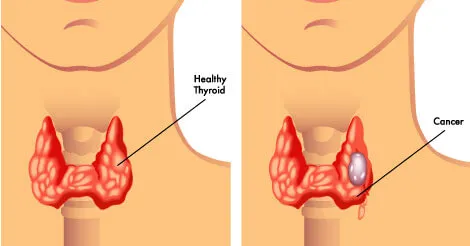
The thyroid gland may be small, but it plays a big role in maintaining overall health. When the thyroid isn’t functioning properly it can lead to a range of health issues. In some cases, thyroid surgery may be necessary to address serious conditions like nodules or cancer. Understanding common thyroid disorders and how they are treated is a key step toward managing thyroid health.
Understanding the Thyroid
Shaped like a butterfly and located in the front of your neck, this gland helps regulate metabolism, energy levels, and even body temperature. The thyroid is part of the endocrine system, which produces hormones that regulate bodily functions. Thyroid hormones, specifically thyroxine (T4) and triiodothyronine (T3), affect nearly every system in the body.
These hormones are responsible for controlling how the body uses energy, influencing processes such as heart rate, digestion, and even mood. When the thyroid produces too much or too little hormone, it can cause noticeable disruptions. Many people with thyroid disorders are unaware of the gland’s far-reaching effects until symptoms appear.
Common Thyroid Disorders and Symptoms
Thyroid disorders can present in different forms. Symptoms vary depending on whether the thyroid is overactive or underactive. Here are two of the most common disorders:
1 . Hypothyroidism
Hypothyroidism occurs when the thyroid doesn’t produce enough hormones to meet the body’s needs. This condition can lead to symptoms such as fatigue, weight gain, sensitivity to cold, dry skin and hair, depression, and constipation. The most common cause of hypothyroidism is Hashimoto’s thyroiditis, an autoimmune disorder where the immune system attacks the thyroid gland.
2. Hyperthyroidism
Hyperthyroidism is the opposite of hypothyroidism, occurring when the thyroid produces too much hormone. Common symptoms include weight loss despite normal or increased appetite, rapid or irregular heartbeat, nervousness or irritability, sweating, tremors, and difficulty sleeping. A frequent cause of hyperthyroidism is Graves’ disease, an autoimmune condition, though other causes can include thyroid nodules or inflammation of the gland.
Treatment Options for Thyroid Disorders, Including Thyroid Surgery
Treatment for thyroid disorders depends on the condition and its severity. Here are some common approaches:
- Medication
For hypothyroidism, doctors often prescribe synthetic thyroid hormones, such as levothyroxine, to stabilize hormone levels. Hyperthyroidism, on the other hand, may require medications that reduce hormone production or beta blockers to manage symptoms like rapid heart rate. - Radioactive Iodine Therapy
This treatment is designed for hyperthyroidism and works by damaging the overactive thyroid cells, reducing excess hormone production. It’s non-invasive and usually administered in a single dose. - Lifestyle Adjustments
For individuals with mild cases, dietary changes and stress management techniques might help alleviate some symptoms. While these adjustments cannot cure thyroid disorders, they might support overall health. - Thyroid Surgery
Thyroid surgery may be needed when other treatments are ineffective or when conditions like thyroid cancer, large goiters, or nodules cause complications. Removal of part or all of the thyroid requires ongoing hormone replacement therapy.
If you experience persistent swelling in the neck, difficulty swallowing, or symptoms that don’t improve after treatment, thyroid surgery could be worth discussing with your healthcare provider.
When to Seek Help
Thyroid disorders can often go unnoticed for long periods, as symptoms may overlap with other conditions. If you notice consistent fatigue, unexpected changes in weight, or other symptoms listed above, it may be time for a medical evaluation. A thyroid blood test can measure levels of T3, T4, and thyroid-stimulating hormone (TSH) to determine if the thyroid is functioning properly.
Taking proactive steps to address thyroid health is key to overall well-being. With treatment options ranging from medication to thyroid surgery, healthcare providers can tailor a plan that aligns with your needs. By understanding the role of your thyroid and recognizing common symptoms, you’re well on your way to staying informed about your health and exploring resources to manage it effectively.
Discover the latest news and updates on The Blog Verge






